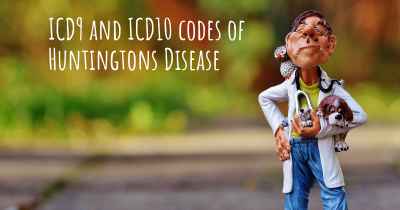What is the life expectancy of someone with Huntingtons Disease?
Life expectancy of people with Huntingtons Disease and recent progresses and researches in Huntingtons Disease

Huntington's disease is a progressive genetic disorder that affects the brain and causes the deterioration of both physical and mental abilities. The life expectancy of individuals with Huntington's disease varies depending on several factors. On average, people with Huntington's disease live for approximately 15 to 20 years after the onset of symptoms. However, it is important to note that this can vary significantly from person to person. Some individuals may live for many years with minimal symptoms, while others may experience a more rapid decline in health. It is crucial for individuals with Huntington's disease to receive appropriate medical care and support to manage their symptoms and improve their quality of life.
Huntington's disease (HD) is a progressive genetic disorder that affects the brain, leading to the deterioration of both physical and mental abilities. It is caused by a mutation in the huntingtin gene, which results in the production of abnormal proteins that gradually damage nerve cells in the brain.
HD is typically characterized by a wide range of symptoms, including involuntary movements (chorea), cognitive decline, psychiatric disturbances, and difficulties with speech and swallowing. The onset of symptoms usually occurs between the ages of 30 and 50, although it can manifest at any age.
When it comes to the life expectancy of individuals with Huntington's disease, it is important to note that the disease progression and prognosis can vary significantly from person to person. The duration of the disease can span over several decades, with some individuals experiencing a more rapid decline while others have a slower progression.
The average life expectancy after the onset of symptoms is typically around 15 to 20 years. However, it is crucial to understand that this is just an average estimate and does not apply universally to all individuals with HD. Some individuals may live for many years beyond this average, while others may experience a more rapid decline.
Several factors can influence the life expectancy of someone with Huntington's disease. One of the key factors is the age at which symptoms first appear. Individuals who develop symptoms at a younger age, known as juvenile-onset HD, tend to have a more aggressive form of the disease and a shorter life expectancy compared to those with adult-onset HD.
Additionally, the rate of disease progression can also impact life expectancy. Some individuals may experience a slower decline in their physical and cognitive abilities, allowing them to live longer with the disease. Conversely, others may experience a more rapid deterioration, leading to a shorter life expectancy.
The presence of other medical conditions can also influence the overall health and life expectancy of individuals with HD. It is not uncommon for individuals with HD to develop secondary complications such as pneumonia, cardiovascular diseases, or infections, which can further impact their well-being and longevity.
It is important to highlight that while Huntington's disease is a progressive and currently incurable condition, there are various treatments and interventions available to manage its symptoms and improve the quality of life for individuals with HD. These may include medications to control movement problems, psychiatric medications to manage behavioral symptoms, and supportive therapies such as physical and occupational therapy.
In conclusion, the life expectancy of someone with Huntington's disease can vary significantly depending on individual factors such as age of symptom onset, rate of disease progression, and the presence of other medical conditions. While the average life expectancy after symptom onset is around 15 to 20 years, it is important to remember that this is just an estimate and does not apply universally. Each person's journey with HD is unique, and medical advancements and supportive care can play a crucial role in improving both the duration and quality of life for individuals with Huntington's disease.








